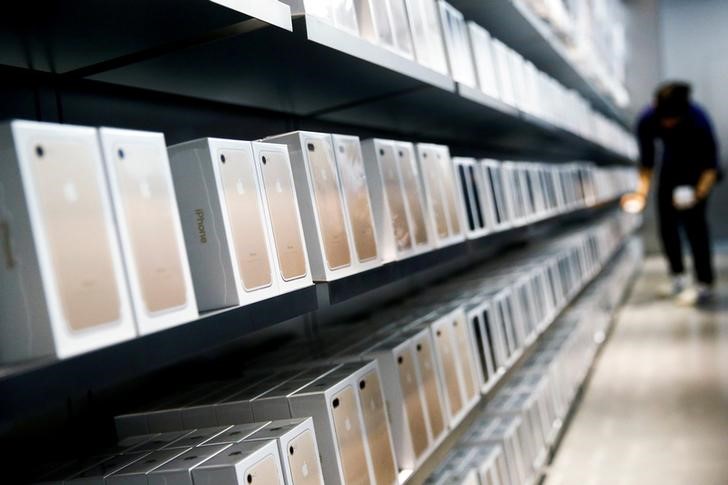Two 59%+ winners, four above 25% in Aug – How this AI model keeps picking winners
Investing.com -- Apple could be forced to increase prices on its products in the U.S. to mitigate the financial impact of potential tariffs, according to a recent analysis by Bank of America.
The firm estimates that a 10% tariff on all Apple (NASDAQ:AAPL) products imported into the U.S. would result in a 2% to 3% decline in earnings per share (EPS) unless the company adjusts pricing.
The tariffs stem from a memorandum signed by former President Trump, which ordered the development of reciprocal tariffs for U.S. trading partners.
“Trump noted it will be a ‘simple system with no one exempt’ from the tariffs,” BofA stated.
The bank adds that while the 10% figure applies specifically to China, the threat of higher reciprocal tariffs on countries such as India could influence Apple’s supply chain decisions.
BofA projects that Apple sells approximately 50 million iPhones, 15 million iPads, and 10 million Macs in the U.S. annually.
They believe that if the company maintains its current pricing structure, the tariffs could reduce EPS by $0.26, or 3.1%, in calendar year 2026.
However, “if Apple raises prices by ~3% in the U.S., the earnings impact would be $0.21 (-2.4%) in C26 (we assume 5% fewer units sold),” the analysts wrote. Should demand remain inelastic, the effect could be even smaller.
To offset the tariff impact fully, BofA estimates Apple would need to raise prices by approximately 9%, assuming a 5% drop in unit sales.
The potential for reciprocal tariffs on India further complicates the situation. “While most iPhone models can now be manufactured in India, the reciprocal tariffs Trump could impose on India would likely be higher than China’s 10%,” BofA said.
India currently imposes tariffs of 16.5% to 22% on mobile phones and certain consumer electronics produced outside the country.
Despite these concerns, BofA is maintaining its Buy rating on Apple, citing “stable cash flows, earnings resiliency & potential beneficiary of AI use on edge devices.” The firm has left its financial estimates unchanged, keeping its price target at $265 per share.
